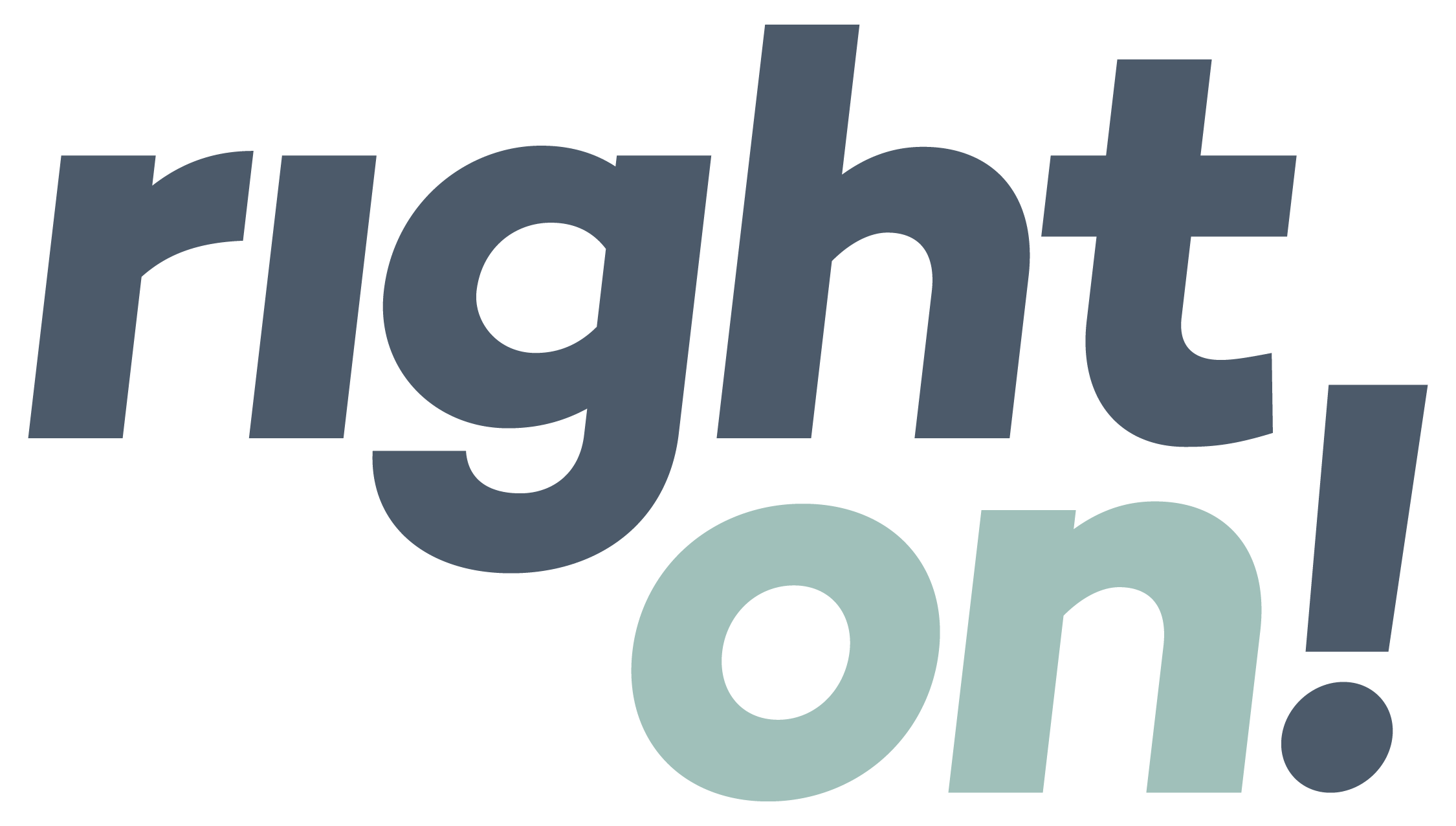
Creating human-centered content in an AI-powered world.
AI makes creative work more efficient. At Right On, we think of it like a digital intern who’s always at our side. This intern can help us gather information and brainstorm initial ideas. It can help summarize longer pieces of content. And it can serve as a pretty decent scribe during interviews and meetings.
But like any intern, its work must always be checked and built upon. Its facts are often questionable or completely made up. And on many projects, it may not save us any time at all.
As an agency committed to bringing humanity, creativity, and quality to sustainability communications, we must identify the ways we’ll use AI—and the ways we won’t. The following principles and assertions will guide us as we work to build a mature and responsible AI practice.
HUMANITY: We will never replace human creative content with AI-generated content.
Original, creative, and thought-provoking work gets better results.
AI simply can’t do this type of work. It can’t think and feel like humans do. It doesn’t have original ideas. And it hasn’t lived through all the wild, tough, and amazing things we humans have.
While we believe it has a valuable role to play in the creative process, it’s not a creator itself. That’s where the unique talents, perspectives, and insights of human creatives come in.
EFFICIENCY: We will use AI to work faster and smarter—and to help our clients thrive.
We have a responsibility to guide our clients to the most effective uses of AI in the content creation process—so they can stay competitive and get ahead.
When appropriate, our strategists, writers, and designers may use generative AI for tasks such as gathering background information, brainstorming creative thought starters, roughing out topics for stories, repurposing content for different formats, and ideating on initial designs.
We’ll keep experimenting with new tools and discovering new ways to incorporate them into our workflows. As we learn more, we’ll adapt our processes accordingly—and share our knowledge freely with our clients, our team, and all our colleagues who are learning and growing alongside us.
SUSTAINABILITY: We will consider the social and environmental risks of the AI tools we use.
AI technologies could soon gobble up as much electricity as an entire country. With its ever-growing carbon footprint, AI threatens to upend climate progress even as it works on promising climate solutions.
AI tools can also cause real harm to actual people. Tech companies are facing legal challenges for infringing on artists’ and writers’ copyrights. The tools have also been shown to replicate racial and gender biases. And they train their models using low-paid labor that has been called a form of “digital slavery.”
With these environmental and social impacts in mind, we will do our best to use AI responsibly. By continuing to build our team’s diversity and learn the principles of DEI, we’ll be better able to spot bias in AI results. We’ll also educate ourselves about the energy efficiency, copyright policies, and labor practices of the tools we use—while acknowledging that many AI tools do not readily disclose this information. In addition, we’ll approach each use of generative AI with this question: Is there a non-AI way to get similar results with similar efficiency?
ACCURACY: We will carefully vet all AI-generated information and sources.
AI mines the internet for data—and picks up a lot of garbage along the way. This can lead to content that’s filled with errors and that risks our clients’ reputations.
That’s why human creatives will always remain central to our content creation process. Information and inputs they gather using AI will be treated like all other source material—every data point, info bit, quote, or resource will be carefully reviewed and vetted for accuracy, credibility, and relevance.
PRIVACY: We will protect client and customer data whenever we use AI.
When we sign an NDA with our clients, we promise not to share their confidential material with anyone else. This means we will never share client information with large language models, which save all user inputs and could use those inputs in their responses to others.
In addition to protecting client information such as internal strategy, unpublished data, and other sensitive materials, we’ll also protect the privacy of the content strategy documents and creative briefs that we create for our clients. We will never input any of these materials—in part or in whole—into LLMs.
TRANSPARENCY: We will disclose how we use AI in our work.
From Sports Illustrated to USA Today, established brands have lost credibility and trust overnight because they haven’t disclosed how they used AI in their content creation.
But transparency goes far beyond simply admitting that bots have written your content. Right On requires our strategists, writers, and designers to provide a clear accounting of how generative AI was used to assist in their content strategy or development processes. And in long-form content where footnotes, endnotes, or resource lists are used, our writers will cite their use of generative AI.
We’re on this learning path together.
We’ve been writing about AI for our tech clients for years—long before ChatGPT made it cool. And yet we’re still at the beginning of a journey with no clear map, and no end in sight.
Our goal, then, is to keep moving forward. We’ll continue to approach AI with an open mind, an eagerness to learn, and a collaborative spirit. In the days, months, and years to come, we completely expect to revisit and refine our thinking.
You can help us on this journey. For starters, I’d love to know what you think of our current AI principles and assertions. What did we get right? Where do we need to think more deeply? And how can we help you thrive in an AI-powered world? Please reach out to kim@wearerighton.com with your ideas, your questions, and your thoughts on the future of AI and creativity.
Thanks to Wholegrain Digital for helping to inform our perspective on the ethical use of AI. Thanks also to Empower Agency for another great example of an AI manifesto rooted in human-first content creation and the responsible use of AI.
Our Most Recent Insights.
SEE ALL INSIGHTS →
Strategy
Make the truth memorable.
The stories we tell, and how we tell them, can help keep trolls and untruths at bay.

Storytelling
Why science needs stories.
By combining data with stories, we make meaning from information.

Strategy
How to talk climate with conservatives.
Many conservatives care deeply about the environment. They just talk about it differently.
